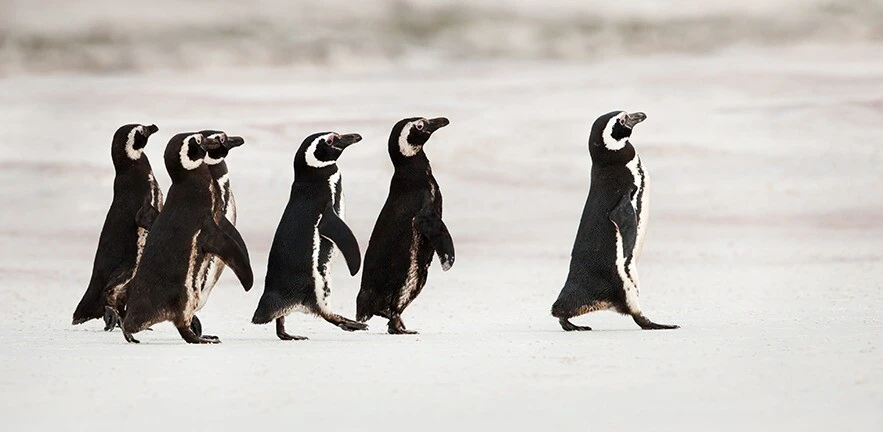Management Practice Associate Professor
BA (University of Nottingham), MA (University of Manchester), PhD (University of Cambridge)
My research interests include multinational organisation, cross-cultural management, and human resource management in China.
I’m a member of the Organisational Behaviour subject group at Cambridge Judge Business School, which aspires to promote our basic understanding of behaviour at all levels within organisations and translate our scientific research into practical applications with executive and corporate value.

Publications
- Selected publications
- Journal articles
- Books, monographs, reports and case studies
- Book chapters
- Working papers
Selected publications
- Goodall, K., Li, N. and Warner, M. (2007) “Expatriate managers in China: the influence of Chinese culture on cross-cultural management.” Journal of General Management, 32(2): 57-76
- Goodall, K., Warner, M. and Lang, V. (2004) “HRD in the People’s Republic: the MBA ‘with Chinese characteristics’?” Journal of World Business, 39(4): 311-323
- Goodall, K. and Roberts, J. (2003) “Repairing managerial knowledge-ability over distance.” Organization Studies, 24(7): 1153-1175
- Goodall, K. and Warner, M. (2003) “Kodak in China: transferring ‘know-how’ to the Xiamen Plant.” In Gooderham, P.N. and Nordhaug, O. (eds.): International management: cross-boundary challenges. Malden, Mass.: Blackwell, pp.274-295
- Goodall, K. and Warner, M. (2003) “Lafarge in China: cross-national HRM.” In Gooderham, P.N. and Nordhaug, O. (eds.): International management: cross-boundary challenges. Malden, Mass.: Blackwell, pp.103-129
- Goodall, K. and Warner, M. (2002) “Corporate governance in Sino-foreign joint ventures in the PRC: the view of Chinese directors.” Journal of General Management, 27(3): 77-92
Journal articles
- Petersen, D.A. and Goodall, K. (2025) “Leadership development in the cross-cultural context of China: who really cares?” International Business Review, 34(3): 102400 (DOI: 10.1016/j.ibusrev.2025.102400)
- Goodall, K., Boyle, A.A. and MacKenzie, R. (2024) “Qualitative study of new doctor induction and socialisation.” Emergency Medicine Journal, 41: 532-537 (DOI: 10.1136/emermed-2022-212369)
- Goodall, K., Li, N. and Warner, M. (2007) “Expatriate managers in China: the influence of Chinese culture on cross-cultural management.” Journal of General Management, 32(2): 57-76
- Goodall, K., Warner, M. and Lang, V. (2004) “HRD in the People’s Republic: the MBA ‘with Chinese characteristics’?” Journal of World Business, 39(4): 311-323
- Goodall, K. and Roberts, J. (2003) “Only connect: teamwork in the multinational.” Journal of World Business, 38(2): 150-164
- Goodall, K. and Roberts, J. (2003) “Repairing managerial knowledge-ability over distance.” Organization Studies, 24(7): 1153-1175
- Ding, D., Goodall, K. and Warner, M. (2002) “The impact of economic reform on the role of trade unions in Chinese enterprises.” International Journal of Human Resource Management, 13(3): 431-449
- Goodall, K. and Warner, M. (2002) “Corporate governance in Sino-foreign joint ventures in the PRC: the view of Chinese directors.” Journal of General Management, 27(3): 77-92
- Ding, D., Goodall, K. and Warner, M. (2000) “End of the ‘iron rice-bowl’: whither Chinese human resource management?” International Journal of Human Resource Management, 11(2): 217-236
- Goodall, K. and Warner, M. (1999) “Enterprise reform, labor-management relations, and human resource management in a multinational context.” International Studies of Management and Organization, 29(3): 21-36
- Goodall, K. and Warner, M. (1998) “HRM dilemmas in China: the case of foreign-invested enterprises in Shanghai.” Asia Pacific Business Review, 4(4): 1-21 (DOI: 10.1080/13602389812331288264)
- Goodall, K. and Warner, M. (1997) “Human resources in Sino-foreign joint ventures: selected case studies in Shanghai, compared with Beijing.” International Journal of Human Resource Management, 8(5): 569-594 (DOI: 10.1080/095851997341397)
Books, monographs, reports and case studies
- Warner, M. and Goodall, K. (eds.) (2009) Management training and development in China. Abingdon, Oxon and New York, NY: Routledge.
Book chapters
- Goodall, K. and Petersen, D.A. (2023) “Management education in China.” In: Nolan, J., Shuming, Z. and Kamoche, K. (eds.) Routledge handbook of Chinese business and management. London: Routledge
- Goodall, K. and Ponomareva, Y. (2018) “Building an LNG tank in the Russian Arctic: scientific management in the snow.” In: Casas i Klett, T. and Ponomareva, Y. (eds.) The life of Russian business: (re)cognizing, (re)activating, and (re)configuring institutions. Charlotte, NC: Information Age Publishing, pp.93-96
- Goodall, K. and Warner, M. (2003) “Kodak in China: transferring ‘know-how’ to the Xiamen Plant.” In Gooderham, P.N. and Nordhaug, O. (eds.): International management: cross-boundary challenges. Malden, Mass.: Blackwell, pp.274-295
- Goodall, K. and Warner, M. (2003) “Lafarge in China: cross-national HRM.” In Gooderham, P.N. and Nordhaug, O. (eds.): International management: cross-boundary challenges. Malden, Mass.: Blackwell, pp.103-129
- Goodall, K. (2002) “Managing to learn: from cross-cultural theory to management education practice.” In Warner, M. and Joynt, P. (eds.): Managing across cultures: issues and perspectives. London: Thomson Learning, 2nd edition, pp.256-268
- Warner, M., Goodall, K. and Ding, D. (2002) “Implementing China’s people-management reforms.” In Warner, M. and Joynt, P. (eds.): Managing across cultures: issues and perspectives. London: Thomson Learning, 2nd edition, pp.168-177
Working papers
- Goodall, K., Li, N. and Warner, M. (2007) “Expatriate managers in China: the influence of Chinese culture on cross-cultural management.” Cambridge Judge Business School Working Papers, No.01/2007. Cambridge: University of Cambridge.
- Warner, M., Goodall, K. and Ding, D. (1999) “The ‘myth’ of human resource management in Chinese enterprises.” Judge Business School Working Papers, No.1999/13. Cambridge: University of Cambridge.
News and insights
The study of leadership has been a troubled discipline from an academic perspective. For many years, people have been trying to pin down the essence of leadership and have largely failed.
News
Learning to lead
As more and more is demanded of leaders in a complex and unpredictable world, what should you bear in mind as you develop your own leadership style?
The Cambridge MBA can claim a unique approach to teaching the "doing" of management with its Management Praxis course. Faculty and candidates explain why. Cambridge places a unique value on Management Praxis (MP) on the MBA programme. The intensive focus is a measure of the importance of the subject says Dr Matthew Jones, one of Cambridge Judge Business School's faculty who teach the course: "Management Praxis is about the 'doing' of management and provides an opportunity for students to develop more flexible, self-aware and skilful practice related to their personal business and management objectives. This deep emphasis on the practice, as well as the theory, of management is a distinctive feature of the Cambridge MBA." The Cambridge Venture Project (CVP) In order to achieve this blending of theory and practice, Management Praxis runs in parallel with a live project working with a local company. This Cambridge Venture Project (CVP) offers a safe environment in which students can try out ideas from the Management Praxis course, enabling them to reflect on and experiment with different ways of being a manager and a team member. "Management Praxis cannot simply be taught in the classroom" says Matthew. "The CVP was therefore designed, from…




